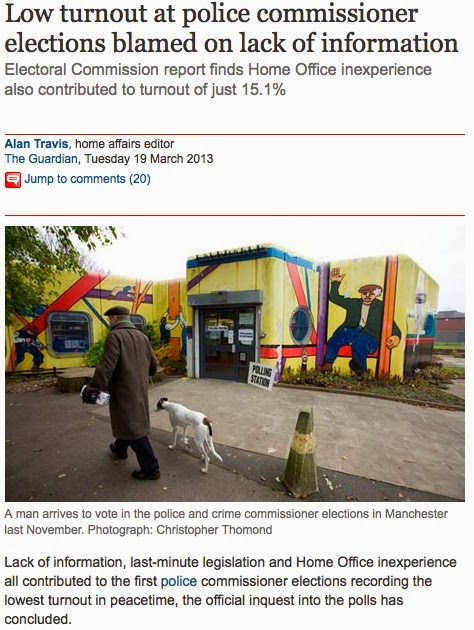“The public debate and the media, which is becoming increasingly celebrity culture, rather hysterical, sensational, and reduces the whole thing to theatre. Everybody’s election campaigns are presidential, everything’s attributed to the party leader. What matters is how the party leader eats a hamburger and all this type of thing." - Ken Clarke, former Tory government minister, 2015
He also appealed to the media to raise their sights from personalities and focus on policy. “The media treatment of any politician over unsubstantiated allegations, be it David Cameron, me or anyone else, is wrong and too much of our media is obsessed with personality politics, obsessed with personal criticism of politicians and therefore detracting from very serious issues around housing, living standards, jobs or world peace.
“I say that kindly. I’m a member of the NUJ actually. Can we try to have more of a grown up media? Or is that too much to ask?” - Jeremy Corbyn 'has not decided' whether to kneel in front of Queen http://gu.com/p/4cybm
Jez, he can rock a knitted jumper...
The media has a new bogeyman with 'Red Ed' duly vanquished...
But maybe he needs a bullet-proof vest?
FEBRUARY 2015, MEDIA FURORE OVER GREEN LEADER'S POOR PERFORMANCE:
The radio interview, as reported by ITV News:
The equally disastrous appearance on the Sunday Politics Show with Andrew Neil (start from 4:17):
The former Green leader defends her on C4 News; should/does Lucas' superior media performance matter?
 |
| Media coverage was consistently condemnatory and dismissive of Bennett - does this harm the Greens? Consider how closely UKIP's fortunes are tied to Farage. |
As the recent spotlight on The Sun's page 3 has reminded us, Rupert Murdoch's entry into the UK media market back in 1968 (buying the NoTW, spectacularly closed in 2011 after the phone hacking scandal broke, and The Sun in 1969) has had far-reaching consequences. A comparison of the nature of newspapers then and now is extraordinary: all, whether popular/tabloid/mid-market (the red-tops) or quality/broadsheet have hugely upped their coverage of soft news (sport, celebrity, human interest) and cut some aspects of their hard news (politics, foreign affairs etc).
This has led to the development of two terms to describe a phenomenon which has since spread beyond the press into all media: tabloidisation and dumbing down.
Have the media, with their frequent focus on personality of leaders and the soap opera of parties' internecine (internal) splits and rivalries rather than policy, turned politics into another form of entertainment, 'politainment'?
There are those who would argue that the media does not in any way perform its fourth estate, watchdog duty as the guarantor of democracy. Noam Chomsky famously argued that it operates on a 'propaganda model', filtering out any radical content that challenges the governing elites (Manufacturing Consent) and creating a false sense of political competition (Necessary Illusions). Russell Brand has rather less scholastically put forth similar views recently, urging people not to vote.
Use the resources below to make up your own mind...
Politainment. The big story of 2014. Politainment is what unites Boris, Brand and Farage, the men who dominate our political dialogue to such an extent that we’ve given up talking about it in favour of talking about them. It’s an old idea (Texan politico Bill Miller coined the phrase “Politics is show business for ugly people” back in 1991, before Jay Leno), but with a twist. Today’s personality politicians are all (to some extent) outsiders. They don’t have to stand a chance of making PM – or stand at all – to make the weather. The centre is so indistinct that the fringe has become the natural area of interest. A sideshow has developed, with circus acts to match. Ugly business for show people. [Lauren Laverne, The Boris, Brand and Farage show: why politicians should steer clear of showbiz]
Politainment, a portmanteau word composed of politics and entertainment, describes tendencies in politics and mass media to liven up political reports and news coverage using elements from public relations. Of doubtful virtue, declining amounts of content and substance can easily be compensated by giving news stories a sensationalistic twinge. Politainment thus ranges on the same level as edu- and infotainment. [Wiki]Living Color: Cult of Personality.
Nigel Farage plays Fruitcake or Loony on HIGNFY
Click below to view further resources
Their policies are erratic, but their leading lights have pledged support for slashing taxes on the rich, privatising public services and repealing basic workers’ rights.
Sentiments, though. Just 36% of voters believe that Nigel Farage was privately educated, even though he was schooled at the prestigious fee-paying Dulwich College; over half believe the same for the state-educated Ed Miliband. Farage has successfully effected an everyman appeal, complete with the almost compulsory pint of bitter at every photographic opportunity. He doesn’t sound scripted, but rather talks in the language of common sense; he presents himself as the outsider against the machine. In a world of relentlessly on-message, professionalised career politicians, it takes little to shine. (Rochester byelection: beliefs of Ukip voters are soaked in leftwing populism)
Nigel Farage's Weather Forecast on BBC Politics Show
Notably, this was uploaded by 'UKIPwebmaster'.
Gordon Brown Overheard Calling Woman Bigot
Gordon Brown Hears the News...
A Typical HIGNFY Gordon Brown Feature
WochIT News: Green Party threaten to sue over 2015 TV Debate exclusion
Ed Miliband on HIGNFY
Ed Miliband Repeats Himself
Discussion: Media's Portrayal of Ed as Wallace
Telegraph: Tips for Ed's New Media Adviser
David Cameron: Miliband is a complete mug
David cameron labels Nadine Dorries 'frustrated'
WebCameron (spoof ending)
SamCam
Some further resources for researching this question:
http://www.theguardian.com/commentisfree/2011/mar/20/politics-policy-media-personality-leadership;
http://www.independent.co.uk/news/world/americas/brazil-elections-personality-rather-than-issues-sure-to-dominate-poll-with-tv-stars-an-astronaut-and-a-porn-star-among-the-candidates-9756413.html;
http://www.ippr.org/juncture/political-leadership-in-an-anti-political-age;
http://www.historylearningsite.co.uk/prime_minister_british_politics.htm;
http://www2.warwick.ac.uk/services/library/mrc/explorefurther/digital/crossman/urss/democracy/;
http://www.australiantimes.co.uk/australian-politics-should-focus-on-policy-not-personalities/;
http://www.salon.com/2008/04/17/glenn_greenwald/;
http://www.spectator.co.uk/features/9322492/the-politics-of-ppe/;
http://www.theguardian.com/politics/2014/jan/23/the-ukip-politices-disowned-by-nigel-farage;
http://www.telegraph.co.uk/news/politics/ukip/11239826/Legalise-handguns-and-repatriate-migrants-Ukips-7-most-controversial-policies.html;
2015 Election Campaign:
 |
| Comparison of Mail/Metro coverage. |

















